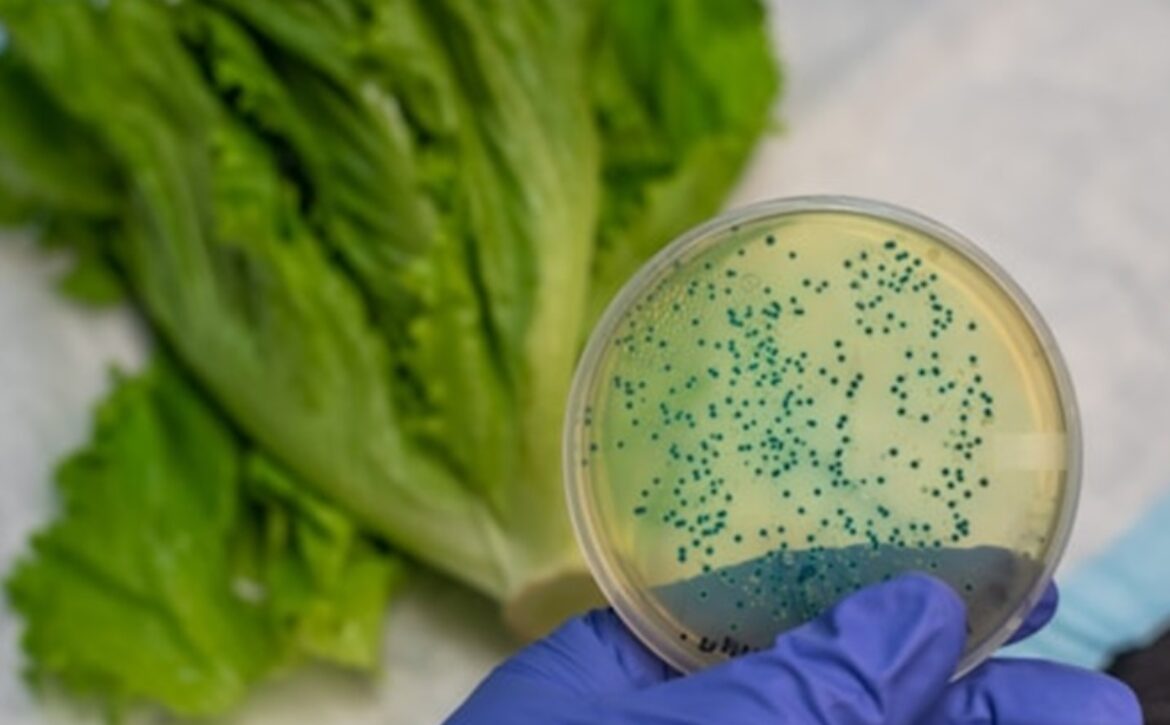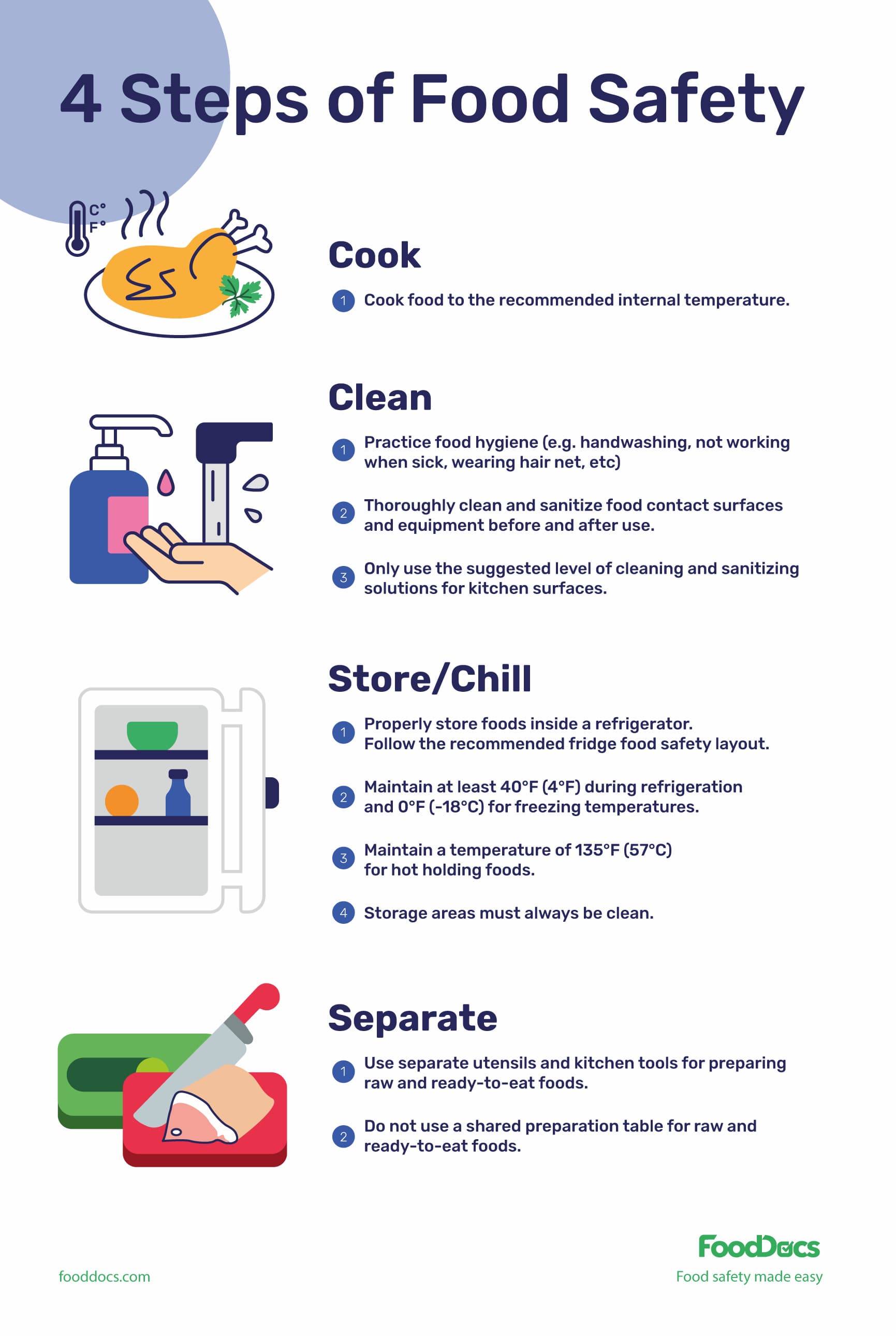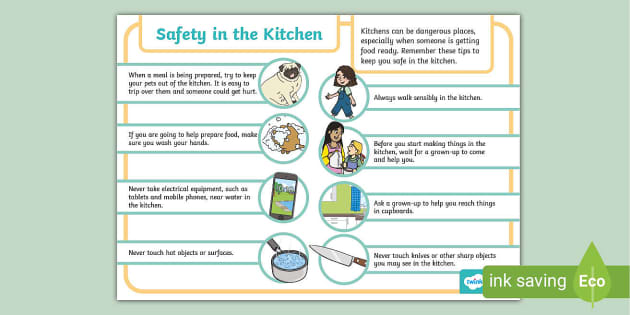
How to Become a Food Hygiene And Safety Expert Fast
Are you passionate about ensuring safe and hygienic food practices? Do you want to make a difference in the culinary world by protecting the health of consumers?
Becoming an expert in food hygiene and safety might be your perfect path. Imagine walking into any kitchen and knowing exactly how to prevent contamination and keep food safe for everyone. This skill is not only essential but also increasingly in demand, as more people become aware of the importance of clean and safe food handling.
You’ll discover the steps you need to take to become a food hygiene and safety professional. You’ll learn the qualifications, skills, and certifications that can open doors to a rewarding career. Grab a seat, and let’s dive into the world of food safety where your expertise can change lives and build trust in every meal served.
Pathways To Expertise
Embarking on a journey to become an expert in food hygiene and safety involves understanding crucial health standards. Learn proper food handling, storage, and sanitation techniques to ensure consumer safety and prevent contamination. Pursue relevant certifications and training to enhance knowledge and skills in maintaining optimal food safety practices.
Embarking on the journey to become an expert in food hygiene and safety is both rewarding and essential. This path ensures that you are equipped with the knowledge and skills to protect public health. Whether you’re just starting or looking to deepen your expertise, there are several pathways to explore.
Formal Education Options
Pursuing a formal education can lay a strong foundation for your career in food hygiene and safety. Many universities and colleges offer specialized programs in public health, food science, and environmental health. These programs often include hands-on lab work and internships, providing practical experience alongside theoretical knowledge. Consider enrolling in a Bachelor’s or Master’s degree program. These programs often cover topics like microbiology, chemistry, and food laws. They can also open doors to advanced career opportunities.
Online Courses And Certifications
Online learning is a flexible option if you’re balancing work or personal commitments. Platforms like Coursera, edX, and LinkedIn Learning offer courses tailored to food safety and hygiene. These courses can range from basic introductions to more advanced certifications. For example, the ServSafe Food Handler certification is widely recognized and respected in the industry. Completing such certifications can boost your resume and enhance your credibility.
Self-study Resources
If you prefer a more independent learning style, self-study resources can be incredibly useful. Books, industry publications, and research papers provide in-depth information at your own pace. The Food Safety Magazine and online forums can keep you updated with the latest trends and practices. Joining online communities can also be beneficial. Engage in discussions, ask questions, and share your knowledge. Have you ever considered how your unique insights might help others or spark a new idea? Exploring these pathways can help you build a comprehensive understanding of food hygiene and safety. What steps will you take to ensure your expertise in this vital field?

Essential Skills And Knowledge
To excel in food hygiene and safety, mastering essential skills and knowledge is crucial. Whether you’re aiming to become a food safety expert or simply want to ensure your kitchen is safe, understanding the basics can make a significant difference. As you dive into this journey, you’ll discover the importance of being well-versed in foodborne illnesses, key sanitation practices, and regulatory compliance. Let’s explore these areas to equip you with the tools needed for success.
Understanding Foodborne Illnesses
Foodborne illnesses are caused by bacteria, viruses, or parasites that contaminate food. Knowing the common culprits like Salmonella and E. coli can help you prevent outbreaks.
Recognize symptoms such as nausea, vomiting, and diarrhea. This knowledge is vital for prompt action if contamination occurs.
Ask yourself, are you prepared to identify the source of contamination quickly? This skill can save lives and preserve health.
Key Sanitation Practices
Effective sanitation practices are your first line of defense against foodborne illnesses. Regularly cleaning surfaces and utensils is essential.
Focus on handwashing as a primary practice. It’s simple yet powerful in preventing the spread of germs.
Think about your current sanitation habits. Are they sufficient to protect you and others from potential hazards?
Regulatory Compliance
Understanding food safety regulations is crucial for anyone handling food. These rules ensure that food is safe for consumption.
Stay updated with local and international food safety standards. This knowledge helps you avoid costly fines and legal issues.
Consider how you ensure compliance. Are your practices aligned with the latest regulations?
Embarking on a journey to become proficient in food hygiene and safety is both challenging and rewarding. Each skill you acquire not only boosts your competence but also contributes to a healthier community. Are you ready to take the next step?
Hands-on Experience
Hands-on experience in food hygiene and safety is crucial. It allows individuals to apply theoretical knowledge practically. This real-world exposure enhances understanding and builds confidence. It prepares you for challenges in maintaining food safety standards. Engaging in hands-on activities provides invaluable insights into the industry.
Internships And Apprenticeships
Internships offer practical experience in food safety. They allow learners to observe professionals at work. You’ll see how hygiene protocols are implemented daily. Apprenticeships provide a structured learning environment. They offer mentorship from experienced food safety experts. You can develop skills while contributing to real projects. These opportunities are essential for career growth.
Volunteer Opportunities
Volunteering provides hands-on experience in food safety. It allows you to work in different settings. Non-profit organizations often need food safety volunteers. Volunteering helps improve your skills while contributing to the community. It’s an excellent way to gain practical knowledge.
Fieldwork In Diverse Settings
Fieldwork exposes you to varied environments. Each setting has unique food safety challenges. Working in diverse locations broadens your understanding. It helps adapt hygiene practices to different circumstances. Experience in varied settings prepares you for future roles. This adaptability is highly valued in the industry.

Networking And Professional Growth
Networking and professional growth are essential in food hygiene and safety. Connecting with others in the field opens doors to new opportunities. Building relationships is key to expanding knowledge and skills. The right connections can lead to career advancements and insights.
Joining Industry Associations
Industry associations offer valuable resources. Members gain access to exclusive information. Joining an association connects you with experts. It helps in staying updated with industry trends. These associations often provide training sessions and certifications. Being a part of them enhances credibility.
Attending Conferences And Workshops
Conferences and workshops are great places to learn. They offer hands-on experiences. Attendees can participate in discussions and panels. These events help in meeting industry leaders. Face-to-face interactions foster strong professional relationships. They also provide insights into new technologies and methods.
Engaging With Online Communities
Online communities are thriving. They offer a platform for sharing ideas. Joining forums and social media groups is beneficial. These communities encourage interaction and exchange of knowledge. Members can ask questions and get advice. Online engagement broadens professional networks significantly.
Staying Current
Learn about food hygiene and safety through courses and certifications. Stay updated on the latest health regulations. Practice regularly to build strong habits.
Staying current in food hygiene and safety is crucial. Regulations change. New threats emerge. Professionals must stay informed. Regular updates ensure compliance and safety. Staying current involves following trends, learning continuously, and embracing technology. Here’s how to do it effectively.
Keeping Up With Industry Trends
Industry trends are ever-changing. Subscribe to industry newsletters. They provide the latest updates. Attend seminars and workshops. Engage with experts. Join relevant forums and groups. Social media platforms offer valuable insights too. Follow key influencers. They share trends and tips. Stay proactive to remain relevant.
Continuous Learning And Development
Continuous learning is essential. Take online courses regularly. They offer flexibility. Certification programs enhance your skills. They add to your credibility. Read industry-related books. They provide in-depth knowledge. Podcasts are great for learning on the go. Listen during commutes. Never stop learning. It keeps you ahead.
Adapting To New Technologies
Technology evolves rapidly. Embrace new tools and software. They improve efficiency. Learn about digital hygiene tracking systems. They streamline processes. Understand data analytics for safety insights. Use mobile apps for quick updates. Virtual reality offers training simulations. They enhance practical skills. Stay tech-savvy to excel.
Building A Personal Brand
Developing expertise in food hygiene and safety builds a strong personal brand. Sharing insights on proper food handling practices attracts attention. Engaging with communities focused on health and cleanliness establishes authority and trust.
Building a personal brand in food hygiene and safety isn’t just about showcasing your skills; it’s about establishing trust and authority in a niche that’s crucial to public health. As someone passionate about this field, you have the opportunity to make a real impact. Your personal brand can help you stand out, attract opportunities, and educate others. Let’s dive into how you can effectively build a strong personal brand.
Creating An Online Presence
Start by crafting a professional website. This is your digital business card, where people can learn about your expertise and achievements. Use a clean design and easy navigation to make it user-friendly. Include a blog section where you share your thoughts and experiences related to food hygiene and safety. This not only shows your knowledge but also keeps your website active and engaging. Consider adding a portfolio showcasing your work, certifications, and any projects you’ve undertaken. This builds credibility and trust.
Publishing Articles And Insights
Write articles on current trends and challenges in food safety. Share your insights, backed by research and personal experiences. This demonstrates your expertise and keeps your audience informed. Submit guest posts to industry-related websites and magazines. This expands your reach and connects you with new audiences. Keep your writing clear and concise. This helps readers understand complex concepts easily, enhancing your reputation as a knowledgeable professional.
Leveraging Social Media
Choose platforms where your audience is most active. LinkedIn is great for professional networking, while Instagram and Facebook can showcase your personality and creativity. Share industry news, tips, and your own content regularly. This keeps your audience engaged and positions you as a thought leader. Engage with your followers. Answer questions, participate in discussions, and encourage feedback. This builds a community around your brand, fostering trust and loyalty. — What does your personal brand say about you? How do you plan to make it memorable? Remember, your voice can inspire change in the world of food hygiene and safety.
Frequently Asked Questions
What Is Food Hygiene And Safety?
Food hygiene and safety involve practices to prevent foodborne illnesses. This includes proper food handling, storage, and preparation. It ensures that food is safe to eat. Understanding food safety principles is vital for anyone working with food. It helps maintain health and prevent contamination.
Why Is Food Hygiene Important?
Food hygiene prevents foodborne illnesses and ensures public safety. It helps maintain food quality and freshness. Proper hygiene practices reduce contamination risks. It is essential for consumer trust and business reputation. Neglecting food hygiene can lead to severe health issues and legal consequences.
How Can I Improve Food Safety Skills?
Improving food safety skills requires training and practice. Enroll in food safety courses and get certified. Stay updated with industry standards and regulations. Practice good hygiene and sanitation habits. Regularly review and assess your safety procedures. Engage in continuous learning and improvement.
What Are Common Food Safety Practices?
Common food safety practices include proper handwashing and using clean utensils. Ensure food is cooked to safe temperatures and stored correctly. Avoid cross-contamination by separating raw and cooked foods. Regularly clean and sanitize food preparation areas. Follow expiration dates and labels carefully.
Conclusion
Becoming a food hygiene and safety expert is rewarding. It ensures public health. Start with the right education. Gain hands-on experience. Practice regularly. Follow guidelines and best practices. Stay updated with new regulations. Engage with industry peers. Learning never stops in this field.
Your role is crucial. Protect others from foodborne illnesses. Make food safety a priority. Your efforts bring trust and confidence. The community relies on your expertise. You can make a difference. Start your journey today.





